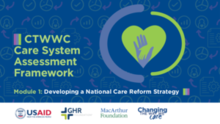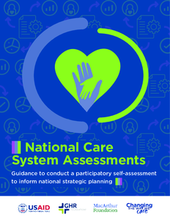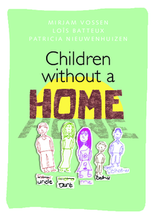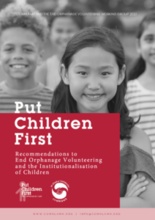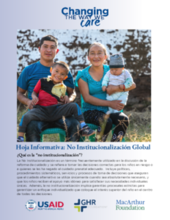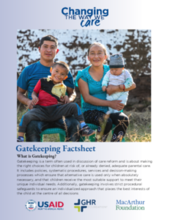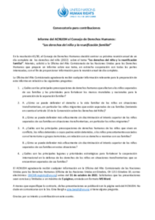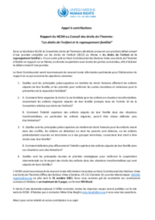Displaying 901 - 910 of 4424
An overview of key considerations and steps to developing a national strategy for care reform
This toolkit includes guidance for implementing the care system assessment, the assessment framework itself, and corresponding training materials. Together, this guidance document, the framework and training resources are intended to support stakeholders to plan and conduct an assessment, use assessment results to develop a national strategy and, over time, monitor progress in strengthening national care systems.
This is an assessment framework with a series of assessment questions for countries interested in furthering care systems. It is intended as a participatory self-assessment and planning exericse to continue to improve national care systems. This assessment information can then be used to develop strategy and action planning towards improving systems of care. This document should be used together with CTWWC's Care System Assessment Guidance document.
This guidance document is intended to support countries to assess nationalcare systems using the Care System Assessment Framework developed and implemented by Changing the Way We CareSM. This document is part of a toolkit that includes the assessment framework and corresponding training materials. Together, this guidance document, the framework and training resources are intended to support stakeholders to plan and conduct an assessment, use
assessment results to develop a national strategy and, over time, monitor progress in strengthening national care systems.
Millions of children in developing countries are unable to live at home for a variety of reasons. The fate of these children is a concern for many people. Some start projects, volunteer with children or support an orphanage. This guide is for them. It is also important for organisations that do not specifically focus on vulnerable children. Because children without sufficient paren-tal care are everywhere: in schools, villages and poor areas in big cities.
Research has shown the harm of orphanage care on children’s health, development and wellbeing and how orphanage volunteering is working to perpetuate these institutional systems which separate children from their families and communities. There is now a global movement to end both practices. These key policy recommendations were published as part of the "Put Children First: End Orphanage Care" campaign.
Gatekeeping es el término que describe el mecanismo, proceso o pasos específicos involucrados en la toma de decisiones relacionadas con el cuidado de las niñas, niños y adolescentes (NNA) donde exista la posibilidad de riesgo de separación familiar, o pérdida del cuidado parental.
This Gatekeeping Factsheet, targeting those engaged in care decisions, including government actors/institutions, civil society organizations, practitioners and parents/caregivers explains the objectives of gatekeeping and essential components of a gatekeeping system, core principles of effective gatekeeping and signs that a gatekeeping system is operating well or needs to be strengthened.
En la resolución 45/30, el Consejo de Derechos Humanos decidió centrar su próxima reunión anual de un día completo de los derechos del niño (2022) sobre el tema “los derechos del niño y la reunificación familial”. Además, solicitó a la Oficina del Alto Comisionado de las Naciones Unidas para los Derechos Humanos que prepare un informe sobre ese tema, en estrecha cooperación con todas las partes interesadas, con el fin de proporcionar información para la reunión anual de día completo.
Dans sa résolution 45/30, le Conseil des droits de l'homme a décidé de consacrer son prochain débat annuel d’une journée complète sur les droits de l'enfant (2022) au thème « les droits de l'enfant et le regroupement familial ». Il a en outre prié au Haut-Commissariat des Nations Unies aux droits de l’homme d’établir un rapport sur ce thème, en étroite coopération avec toutes les parties concernées, afin d’éclairer le débat annuel d’une journée.

